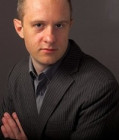Think Tanks and the Rise of Savvy Policy Entrepreneurs
The Heritage Foundation, a prominent conservative think tank based in Washington DC, has lately been in the news. Just after he was re-elected in 2012, U.S. Senator Jim DeMint of South Carolina voluntarily stepped down to pursue his strong conservative agenda as Heritage’s new president. Why would DeMint do that? What is it about think tanks and their experts that can make them seem more influential in shaping politics than even the U.S. Senate?
Bringing Think Tanks into Focus
Few organizations in American politics are both as important and as widely misunderstood as policy “think tanks.” Even the most attentive observers can be at a loss to define think tanks – and for good reason. Fuzziness and ambiguity turn out to be central to the think tank phenomenon, built into their very DNA, the genetic code that makes think tanks what they are.
Think tanks are ostensibly stand-alone organizations, formally separate from established institutions like government agencies, political parties, universities, and lobbying firms. They have resemblances and ties to all these other types of organizations, but they thrive in the blurry spaces in the interstices among all of them. Yet as soon as we begin to look for the traces of think tank activities, they are hard to miss. Think tank-affiliated “policy experts,” as they are often called, testify on Capitol Hill, write policy reports for politicians, and appear as pundits across the full spectrum of media outlets. Think tankers often make declarations – or write short policy advocacy briefs – with the authority once presumed for university-based researchers.
Longstanding and Bipartisan
How have think tanks become political fixtures? Many presume that they proliferated only recently, driven by conservative activists who built organizations like Heritage to influence Republicans. But in fact think tanks are longstanding and operate close to both parties.
- In 1992, a young Arkansas governor named Bill Clinton rose to national prominence with the support of a think tank called the Progressive Policy Institute, which funded his travels around the country and helped create his “new Democrat” governing agenda.
- President Clinton’s 1996 welfare reform was influenced by Charles Murray’s 1984 book Losing Ground, a work funded and promoted by the neoconservative Manhattan Institute.
- Key foreign policy officials in the George W. Bush administration – including Dick Cheney, Donald Rumsfeld, Richard Perle, and Paul Wolfowitz – hailed from the Project for the New American Century, a think thank that issued an early blueprint for the Iraq War.
- Major aspects of President Obama’s health care reform were modeled after the 2006 Massachusetts law signed by Mitt Romney and conceived by the Heritage Foundation.
- No contemporary political figure owes more to think tanks than Mitt Romney’s running mate, Congressman Paul Ryan of Wisconsin, who is often touted as “the intellectual leader of today's conservative” Republicans. Ryan’s image was burnished with the help of think tank ties – including his speechwriting for Empower America and frequent visits to the Heritage Foundation and the American Enterprise Institute. As Stuart Butler of Heritage explains, Ryan is a “good think-tanker-as-politician,” a prominent new DC breed.
What Does It Take to be an Effective Think Tanker?
In popular and scholarly writings, the image of the think tank expert oscillates between extremes. On one side is the lofty “public intellectual,” the thinker who occupies a privileged sanctuary for independent reflection. On the other side is the “intellectual mercenary,” the lobbyist-in-disguise whose organizational perch is merely a front for pushing an ideology or cause.
University-based scholars often presume that think tankers are PhDs who could not land regular tenured professorships. In my research, I find no evidence that think tank experts are less intellectually capable than their academic counterparts. But to focus only on intelligence is to miss the point. To excel in a think tank, a person must develop the skills and savvy to sell arguments to multiple audiences, especially politicians, journalists, and funders.
- To get attention from politicians, a policy expert has to know the rhythms, languages, and stakes of policy battles and anticipate which issues will become “hot” months in advance.
- Because think tanks thrive on media publicity, a good think tanker must also be comfortable “talking in sound bites,” as one organizational president explained.
- Think tanks also compete for funding, so their experts must pry open wallets. This may mean looking for new ways to address funder agendas, or it may involve repackaging work to fit current themes. After the attacks of September 11, for example, many think tank-based experts dropped earlier topics and started proposing “terrorism studies.”
In an interesting metaphor, one organization’s president suggested to me that an effective think tank expert is like a vaudevillian who juggles, sings, tells jokes, spins plates – and then runs into the audience to applaud the performance. “If you do it right,” he said, “all of a sudden, other people start applauding and you’ve got a hit.”
My research has sensitized me to the savvy needed to pull off this juggling act. But I have also concluded that thank tank-sponsored “policy research” tends to generate a simplified and sometimes outright pseudo-scientific brand of knowledge. In the never-ending attempt to balance the search for truth against the demands of sponsors, the needs of politicians, and the preoccupations of journalists, think tank experts become divided against themselves. To be a good think tanker, in short, is to subordinate independent thinking grounded in rigorous research to the vagaries of shifting political and economic priorities. Think tankers may swim with skill in the swirling currents of U.S. politics, but are they helping the nation chart the right course or address the most difficult policy challenges in our time?
